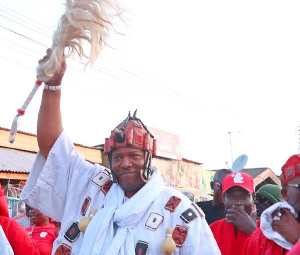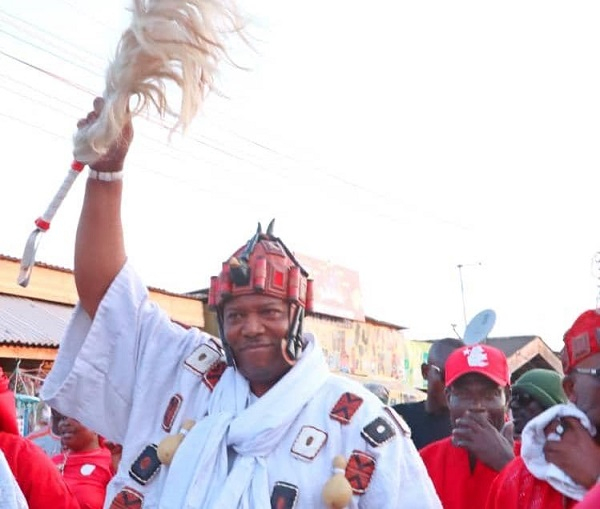 Nii Kwade Okropong I is the Abese La Adonten Mantse
Nii Kwade Okropong I is the Abese La Adonten Mantse
The La Dadekotopong municipality in the Greater Accra Region came alive with a vibrant display of culture, tradition, and communal spirit as the chief, elders, and people of Abese La Adonten concluded their annual Afrimi Yele Yeli (Yam Festival) with a spectacular durbar.
The Afrimi Yam Festival serves as a significant precursor to the Homowo celebrations, reinforcing spiritual connections, ancestral reverence, and a sense of communal identity among the La people.
The event drew participation from various clans in La, as well as schoolchildren, who gathered to honour the theme: “Empowering Ghanaian Youth: Breaking the Chains of Drug Abuse through Cultural Heritage and Community Support.”
Dignitaries in attendance included the Member of Parliament for La Dadekotopon, the Municipal Chief Executive Officer, Ghana’s Ambassador to Brazil, and other distinguished guests.
This year’s celebration aimed to address the issue of drug abuse among La’s youth while promoting unity among the chiefs and people of the community.
In her remarks, Rita Naa Odoley Sowah, who also serves as the Deputy Minister of Local Government, Chieftaincy and Religious Affairs, praised Nii Kwade Okropong I, the Abese La Adonten Mantse, for his transformational leadership and commitment to culturally oriented progress.
She stated that the Afrimi Yele Yeli Festival transcends mere celebration, serving as a catalyst for reflection, education, and societal renewal.
She emphasised that this year’s theme resonates powerfully amid rising challenges of substance abuse among the youth, showcasing the Ga people’s cultural pride, solidarity, and the importance of intergenerational dialogue.
She highlighted that Ghana’s cultural heritage embodies values such as respect, discipline, community, and resilience through traditional rites, music, storytelling, and dance.
She added that the Afrimi Yam Festival acts as a living classroom, instilling identity and purpose while encouraging youth to resist risky behaviours and embrace their heritage, empowering them to stand against destructive influences.
Combatting drug abuse, she said, requires collective responsibility and active partnerships among traditional authorities, faith leaders, educators, parents, and peers. She added that the structure of the Afrimi Yam Festival—with committees focused on youth orientation, education, and cultural preservation—demonstrates how locally led initiatives can drive meaningful change.
“Our communities must foster mentoring systems, livelihood skills training, and youth-friendly networks that empower our young people, rather than simply preach to them,” she stated.
Nii Kwade Okropong I also underscored the importance of unity and communal harmony during the durbar.
He expressed concern about issues undermining the hard-earned reputation of La, noting that many challenges often stem from within the community. He urged the people of La to recognise that solutions must come from their own efforts.
He noted that disunity among the GaDangbe people has impeded progress and development in the region, lamenting the prevalence of a “pull him down” mentality, backbiting, and malicious allegations aimed at tarnishing the name of the Abese people. The gathering, he said, serves as a testament to his commitment to promote La.
He reiterated the need for peaceful coexistence among the chiefs and elders of La and called for full community support for initiatives undertaken by the Abese La Adonten Division, particularly those related to traditional rites.
A number of dignitaries, including lawyer Nii Ayikwei Otto and others, were honored with citations and plaques for their contributions to the Abese La Adonten Division and the GaDangbe community at large.


